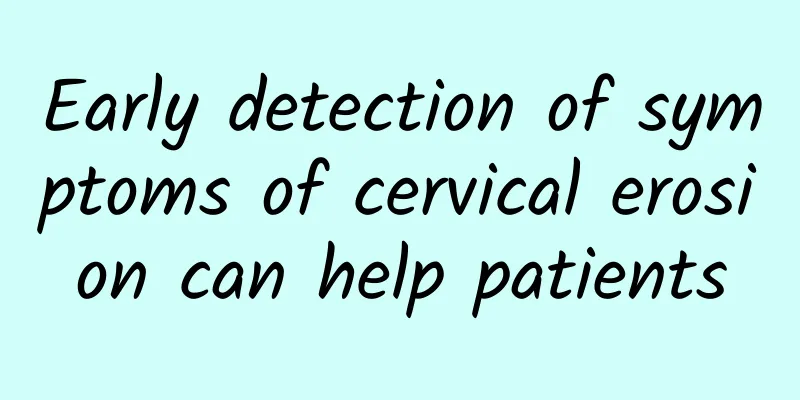What is the reason for menstruation after menopause?

|
What happens when menstruation comes back after menopause? After menopause, menstruation may be caused by excessive estrogen intake, cervicitis, endometritis, cervical cancer, endometrial cancer, etc. 1. Excessive estrogen intake: After menopause, some women use a large amount of health supplements containing high estrogen, which leads to increased estrogen levels in the body and may cause the above phenomenon. 2. Cervicitis: Cervicitis is mainly caused by infection by pathogens, but can also be caused by chemical stimulation, mechanical stimulation or injury, vaginal flora disorder, etc. Most patients with cervicitis are asymptomatic, and the main symptoms are increased vaginal secretions and irregular vaginal bleeding, which can be found after sexual intercourse or during gynecological examinations. 3. Endometritis: Endometritis refers to the invasion of the endometrium and inflammation by bacteria that break through the cervical defenses. It may be asymptomatic or have mild symptoms. Common symptoms include lower abdominal pain, increased vaginal discharge, and persistent abdominal pain, which often worsens after activities or sexual intercourse. In severe cases, fever or even high fever may occur. In addition to inflammatory stimulation, there may also be chills, headaches, loss of appetite, and postmenopausal bleeding. 4. Cervical cancer: Cervical cancer refers to cancer that occurs in the cervix. The main causative factor is HPV infection. The early symptoms of patients are often not obvious. As the disease progresses, symptoms such as vaginal bleeding may occur. In the early stage, it is mainly manifested as intermittent, painless vaginal bleeding, or a small amount of vaginal bleeding after sexual intercourse and defecation. In the late stage, it may be manifested as long-term and repeated vaginal bleeding, and the amount is also increased compared to the early stage. If large blood vessels are invaded, it will cause fatal massive bleeding. 5. Endometrial cancer It is a group of malignant tumors that occur in the endometrial epithelium. The true cause is still unclear. Patients often present with vaginal bleeding and abnormal vaginal discharge as the main clinical manifestations, often accompanied by lower abdominal distension and pain. Late-stage patients also have systemic symptoms such as anemia and weight loss. If the above situation occurs, you need to check as soon as possible, find out the cause, and treat it as soon as possible. |
<<: Will ovarian cysts recur? How to prevent them?
>>: What are the types of ovarian cysts?
Recommend
Dietary therapy for effective treatment of Bartholinitis
Bartholinitis is a disease caused by bacterial in...
How long does it take to get menstruation after laparoscopic surgery for ovarian cysts
For most ovarian cysts, laparoscopic surgery caus...
What are the treatments for vaginitis?
What are the treatments for vaginitis? The treatm...
Symptoms of chronic right adnexitis
Chronic right-sided adnexitis may cause dull pain...
Can chocolate cysts be cured completely?
Chocolate cysts are "lumps" but not &qu...
How long after the abortion can I have sex? Can I have sex with a condom 10 days after the operation?
Can you have sex with a condom 10 days after an a...
What is the cause of the right ovarian cyst? What should women do?
The formation of right ovarian cysts may be cause...
Stay away from the three highs by supplementing deep sea magnesium (Part 2)
Magnesium can regulate blood pressure and improve...
What are the symptoms of miscarriage? There are 3 major symptoms
When a pregnant woman has a miscarriage, her body...
What are the symptoms of menopause in women?
Menopause is something that every woman must go t...
What are the diagnostic methods for chronic cervicitis?
Many people want to know the diagnosis method of ...
What sequelae will abortion bring to female friends?
Many female friends will choose abortion when the...
Prolonged menstrual period is a common symptom of menstrual irregularity
Experts say that there are actually many symptoms...
The causes of cervical erosion at a younger age
In recent years, the incidence of cervical erosio...
The most important preventive measures for vulvar leukoplakia
Among gynecological diseases, vulvar leukoplakia ...









